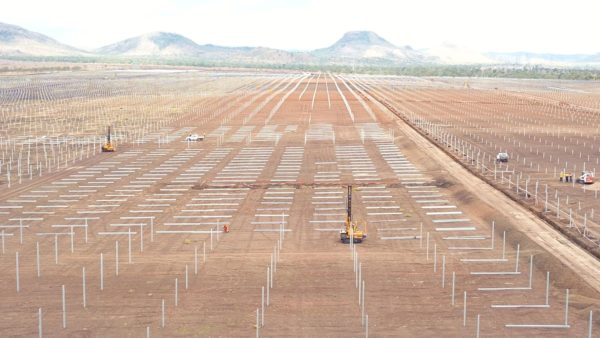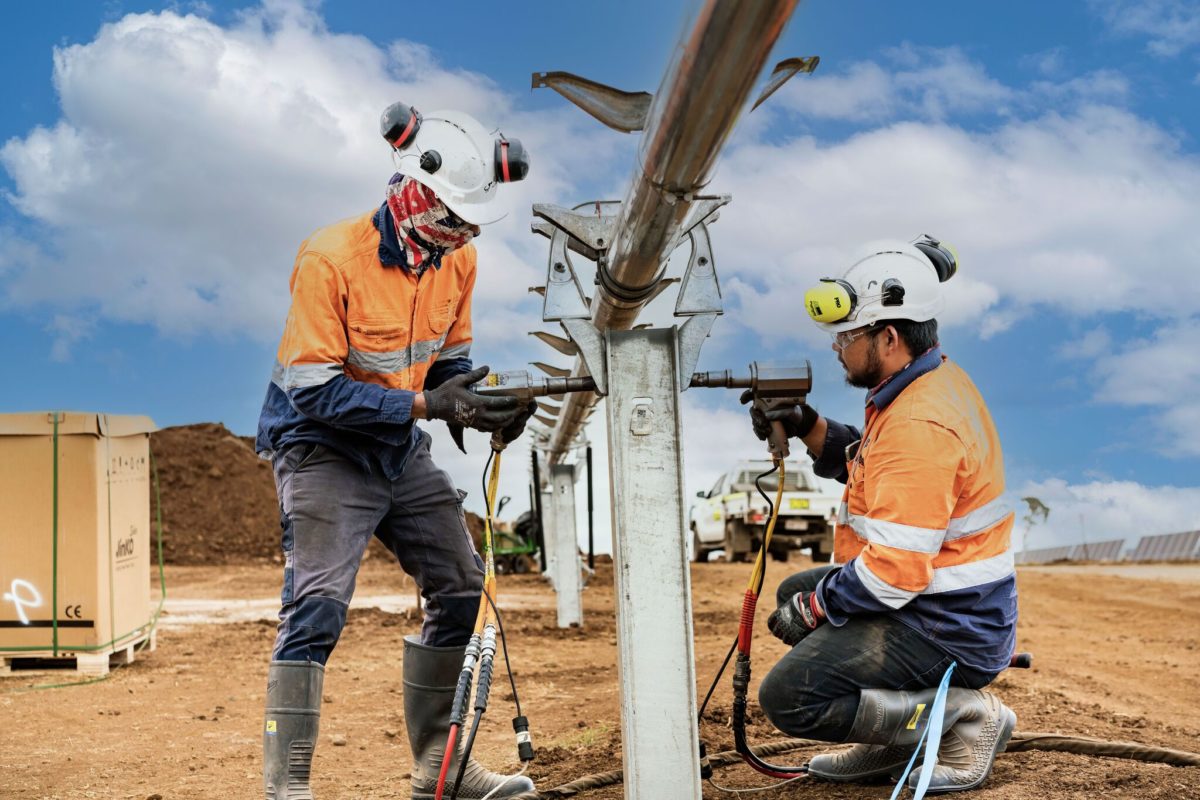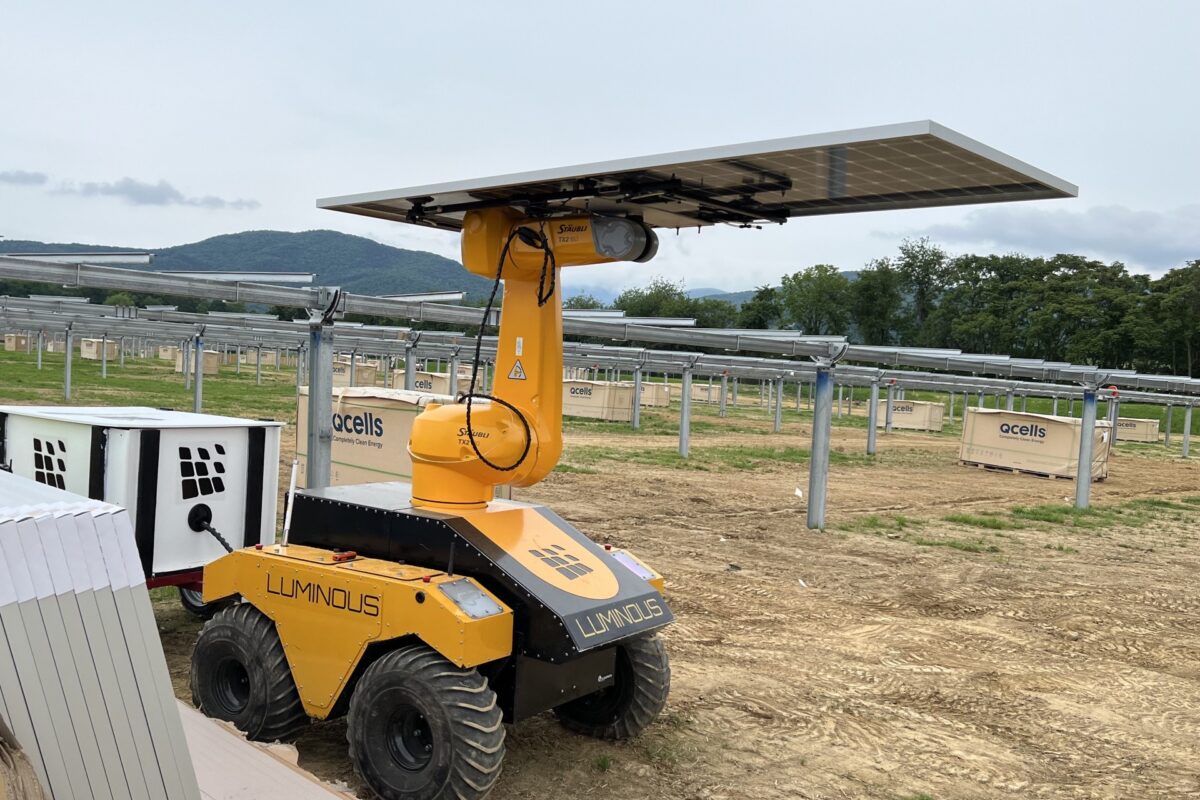At Sterling & Wilson Renewable Energy (SWRE) we wholeheartedly support the words of the Prime Minister at the recent Sydney Energy Forum, when he said that this is “a new era”, one with “new clean-energy industries and jobs as its foundation”.
The government’s plan to allocate up to $3 billion for existing industries to adapt and new industries to grow, and to implement settings that will unlock $52 billion worth of private sector investment, are all crucial ingredients for Australia to become a renewable energy superpower.
However, if we really want to achieve this goal, we must release a hidden handbrake.
Australia’s current renewable energy workforce is not fit for purpose in this new era. To date, our sectors delivering the critical infrastructure for renewables have been dependent on a massively casualised workforce. Whilst this was reasonable in an environment of unstable and inconsistent project-based investment, where work was only available in short bursts, the practice comes with real costs to businesses, projects, staff and customers. Every new project requires new and complex contracts to be established, operational experience relearned, and a new workforce recruited and trained. The resulting costs and inefficiencies represent a critical risk to the government’s aspirations.
If Australia is serious about harnessing the economic and social opportunities that renewable energy offers, we need to work towards the de-casualisation of the renewable energy workforce. The government is promising 604,000 extra jobs, but we need to talk about the kind of jobs we’re creating. What we need is renewable energy careers.
There is a dire need for a review of the workforce with support via apprenticeships, training to reskill workers from other sectors (including coal), skilled migration and incentives for local workers. By investing in training and upskilling we ensure that we have the skills and know-how to develop the renewable energy infrastructure Australia needs and give further confidence to investors.

Image: Tranex Solar
The government’s New Energy Apprenticeships and the New Energy Skills Program are a good start. We should be supporting employment pathways for those entering the workforce for the first time, offering a permanent, secure career that is enticing to young Australians. But we should also be not wasting the talent and expertise of those who have careers in the fossil-fuel industry – re-skilling them into a new energy career. Strategic skilled migration is going to be critical in the short-term, though this must happen in tandem with incentives that develop and retain our local workers in renewable careers, not just casual jobs.
We welcome the recent announcement of the upcoming Jobs and Skills Summit, to be led by the Prime Minister and Treasurer in September. Addressing the issues faced by the renewable energy workforce – in particular, how we move away from casualisation and towards upskilling – must be a key discussion point. Further, a clear plan of meaningful action to actively support a skilled workforce for the renewables and infrastructure sector needs to be established and followed.
At SWRE we are looking forward to delivering some of the massive projects that are going to feed the next resources boom in Australia: the era of renewables. We support looking for ways to create greater collaboration between business partners in the EPC market to help improve quality, turnaround and productivity, which in turn attracts greater investment.
It is our aspiration that there be permanent, secure, career pathways for renewable energy in Australia. Without this, the workforce will not be equipped to deliver on the promises made.
Author: Phil Sheridan, chief executive officer, Sterling & Wilson Renewable Energy Australia
The views and opinions expressed in this article are the author’s own, and do not necessarily reflect those held by pv magazine.
This content is protected by copyright and may not be reused. If you want to cooperate with us and would like to reuse some of our content, please contact: editors@pv-magazine.com.








1 comment
By submitting this form you agree to pv magazine using your data for the purposes of publishing your comment.
Your personal data will only be disclosed or otherwise transmitted to third parties for the purposes of spam filtering or if this is necessary for technical maintenance of the website. Any other transfer to third parties will not take place unless this is justified on the basis of applicable data protection regulations or if pv magazine is legally obliged to do so.
You may revoke this consent at any time with effect for the future, in which case your personal data will be deleted immediately. Otherwise, your data will be deleted if pv magazine has processed your request or the purpose of data storage is fulfilled.
Further information on data privacy can be found in our Data Protection Policy.